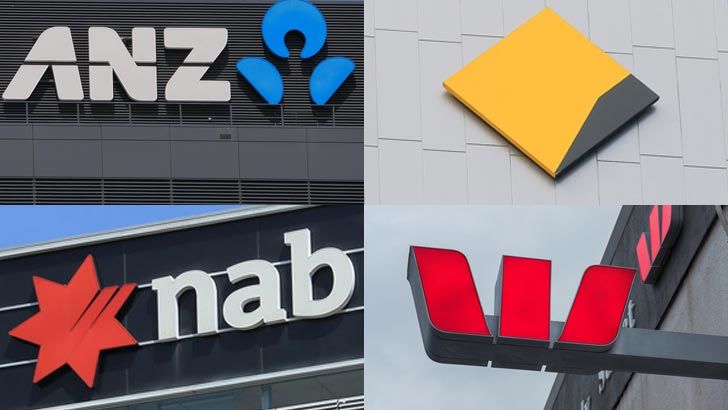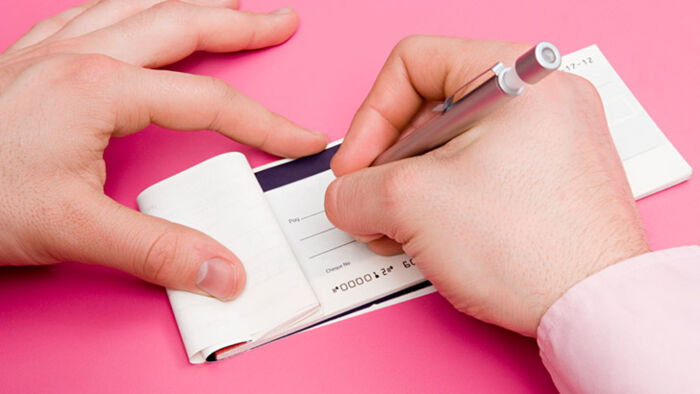Are cheques being phased out in Australia?
By Tom Watson
Like cassette tapes and glam metal, it's fair to say that the heyday of cheques in Australia is now long behind us.
Back in 1980, cheques accounted for 85% all non-cash payments, according to the Reserve Bank. Even in the mid-1990s, Australians were still using around 50 cheques each year on average.
That's all changed in the decades since. As debit and credit cards have surged in popularity for in-person payments and online banking has made near-instant transfers between people possible, the use of previously dominant payment methods like cash and cheques has plummeted.
We've reached the point where, in 2023, less than one cheque was being written per person each year.
"Very few people in Australia now use cheques for payments, which is why the federal government has made the decision to close the country's cheque system," says Michael Lawrence, chief executive of the Customer Owned Banking Association (COBA).
"Over the last 10 years, there has been a 90% decline in use of cheques. In fact, of all non-cash retail payments made in the country, only 0.2% are paid with a cheque."
Why are cheques being phased out?
As Lawrence notes, there will be a time in the near future when cheques disappear altogether from Australia's mix of payment options.
Last year the government announced that the country's cheque system would wind down no later than 2030, emphasising falling cheque use and the increasing per-transaction cost of maintaining the system as some of the reasons for the move.
The government says that it's aiming to phase out its own use of cheques by the end of 2028, though it will need to wind back a number of legislative barriers, which entrench the acceptance of cheques as a payment option, along the way.
In a statement released at the time, Treasurer Jim Chalmers conceded that the transition away from cheques would be a challenge for some.
"We understand the change in payment methods that is already underway is difficult for some people, including older Australians, and some small businesses.
"The seven-year transition plan will provide time for banks and financial institutions to assist their customers with the adjustment."
The government pointed to the fact that a number of countries have already successfully made the move away from cheques.
New Zealand, for instance, became largely cheque-free in 2021 following the discontinuation of cheques by most major banks, while a number of European countries like Denmark, Finland, the Netherlands, Norway and Sweden have made similar moves in years past.
Which banks have already phased out cheques?
While the official phase out period for cheques is likely to run for a few more years at least, some banks are already removing them as an option.
Last year Bendigo and Adelaide Bank phased out chequebooks for new customers and announced that chequebooks would no longer be automatically reissued to existing customers, while in March this year, Bank Australia discontinued all cheque services.
And just this week, Macquarie stopped accepting cheque deposits to bank and savings accounts as part of an ongoing withdrawal from providing cash and cheque services.
ANZ has also announced that new customers will not be able to access chequebooks starting from June 16, though existing customers will still be able to.
Unsurprisingly, individual bank cheques are also becoming harder to get hold of. Australia's four major banks, for example, now only offer bank cheques to their existing customers.
Tracking down the cost and accessibility of bank cheques is no easy task either. When contacted, representatives at two of the banks had trouble locating the fees involved and working out the process of ordering a bank cheque online.

What alternatives do cheque users have?
Though the end of their existence as a form of payment is drawing nearer, that doesn't mean that cheques aren't still being utilised by some Australians.
"Bank cheques can still be used for paper conveyancing settlements and to pay deposits at property auctions or private sales. Some governments and industries still use cheques, however they are progressively transitioning to digital payment methods," Lawrence explains.
For Australians who still rely on cheques to make payments like their rent, regular bills or larger purchases though, what will their options be as cheques are gradually phased out?
"Banks are reaching out to their cheque users to talk through alternatives available, including phone banking, digital banking, branch services and debit or credit card payments," says Lawrence.
Beyond the bank options, money orders from Australia Post are another alternative for those looking to pay their bills or send money to their family or friends. Money orders do come with a fee though and need to be paid on the spot.
Assisting the cheque transition
Lawrence says that banks, including those within the customer-owned banking family, will need to continue to be proactive in helping their customers transition across to other forms of payments.
"This may include directly contacting their customers who use cheques, having one-on-one conversations to work through alternatives, hosting digital workshops to upskill customers in online banking and reaching out to customers across various channels including letters, emails and phone calls to ensure they are aware of the change."
For the past five years, Newcastle Permanent has been on institution helping customers - including cheque users - make the shift across to online banking services by way of its digital masterclasses.
The classes include tutorials on using their banking app, viewing online transactions and statements, making transfers and paying bills, card security and online banking safety.
"We encourage our customers to bring along their own device and a recent bill they may have previously paid by cheque and now want to learn to pay online," says James Cudmore, chief customer and digital innovation officer at the Newcastle Greater Mutual Group.
"During the class we show a series of videos and, with the support of our staff, customers can follow along."
Get stories like this in our newsletters.



